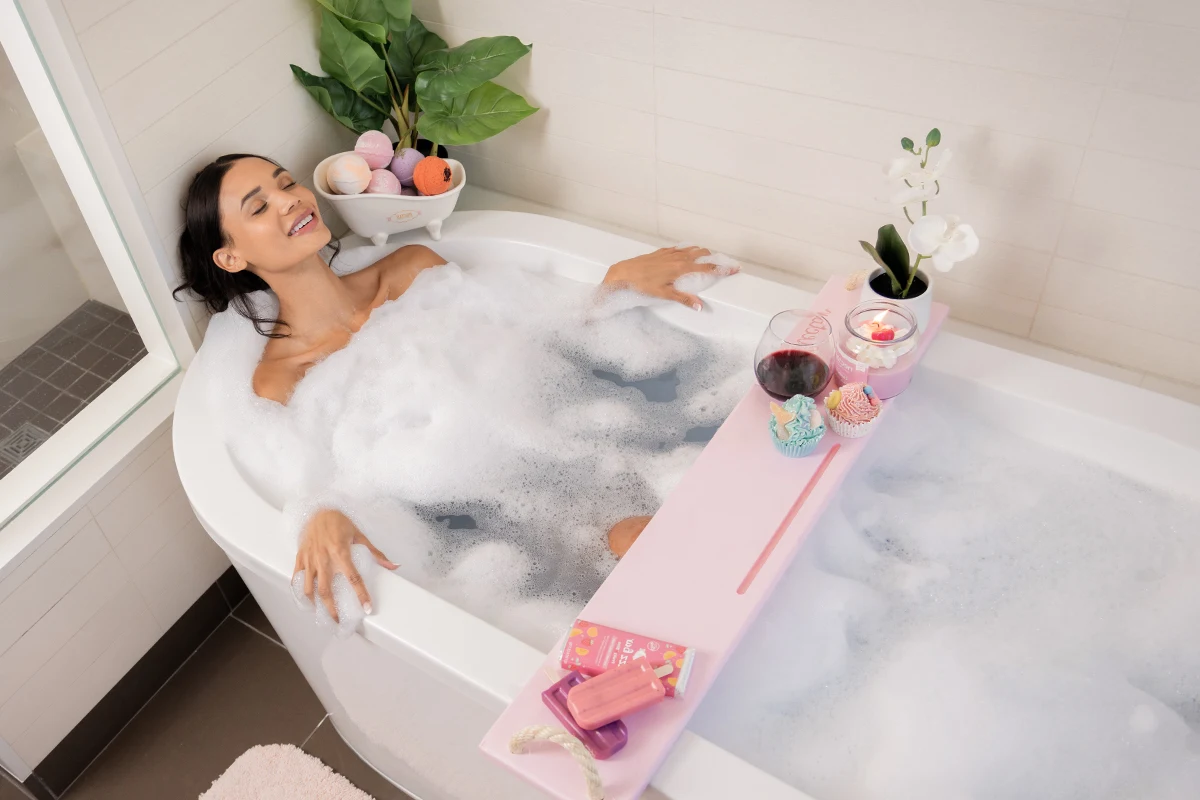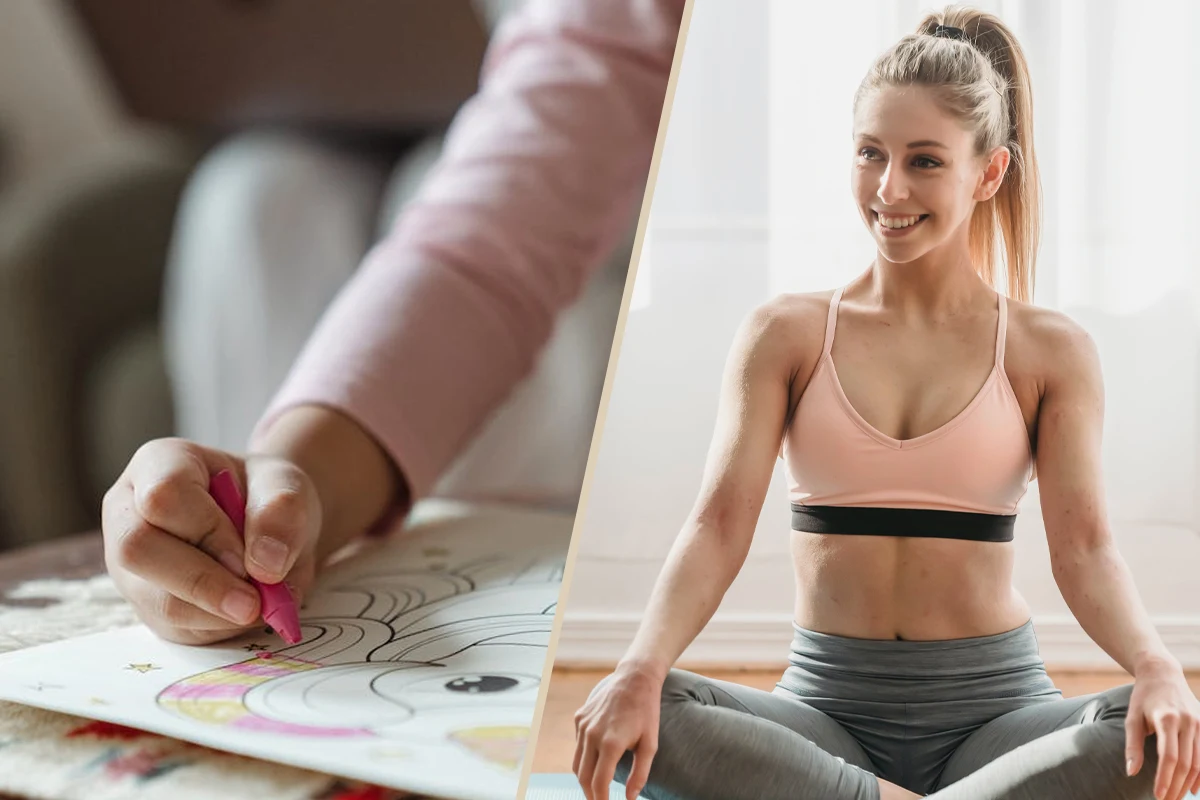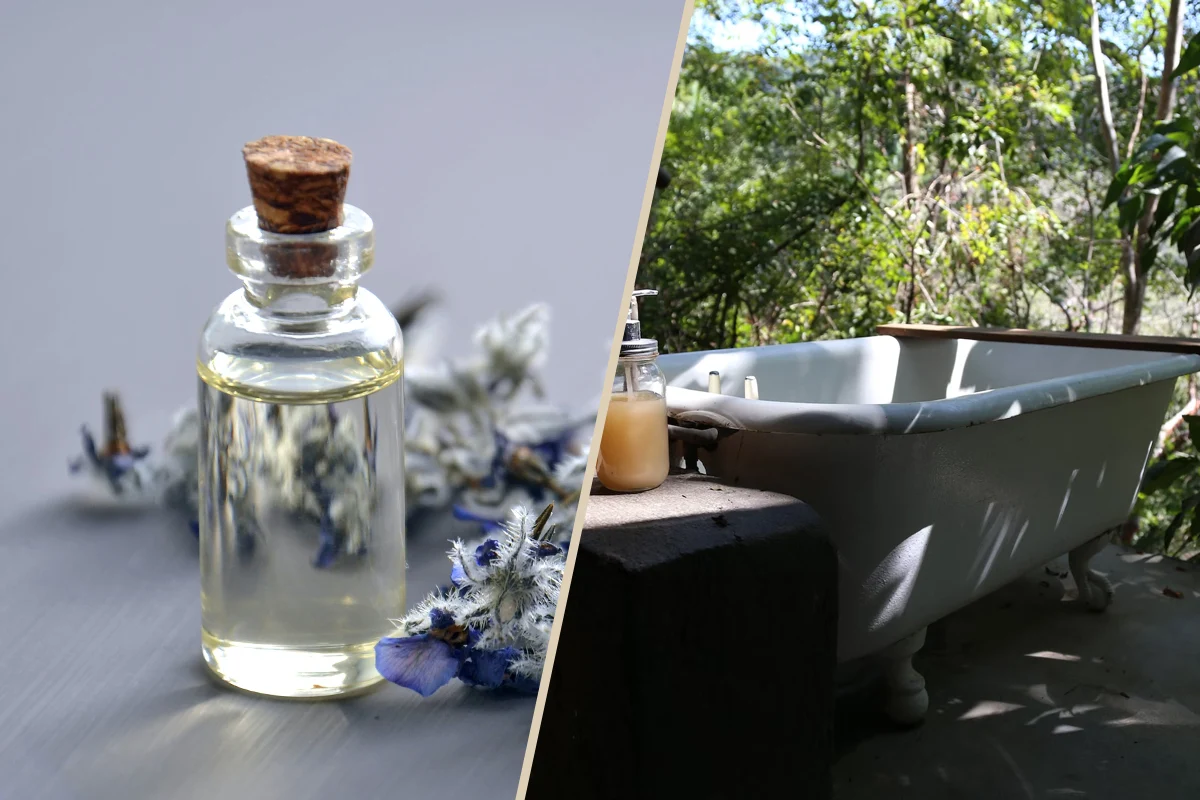Okay, picture this: for years, I kinda rolled my eyes at aromatherapy. Honestly, it sounded a little too… woo-woo for my practical brain. I imagined wispy candles and vague promises of relaxation. Then came that one particularly stressful week – deadlines piling up, sleep MIA, and my skin looking like it had joined the chaos. A friend, a total aromatherapy devotee, practically shoved a bottle of lavender oil under my nose. Skeptical as ever, I dabbed a tiny bit on my wrists before bed, figuring, what did I have to lose?
The next morning? Honestly, I felt… different. Calmer, yes, but also surprisingly refreshed. And get this – even my usually grumpy skin seemed to have taken a chill pill. Turns out, aromatherapy is so much more than just nice smells. It’s a powerful way to tap into your senses and unlock some incredible benefits for your beauty and overall well-being. Let's explore five compelling ways aromatherapy can elevate your routine, even if you're a former skeptic like yours truly!
#1. Stress Less, Glow More: Lavender, Camomile and Bergamot
Let's face it: stress is a notorious beauty thief. It can manifest as dull skin, breakouts, dark circles, and even hair loss. On the wellness front, chronic stress takes a toll on our sleep, mood, and overall health. This is where aromatherapy shines. Certain essential oils possess remarkable anxiolytic (anxiety-reducing) properties that can help calm the nervous system and promote a sense of tranquility.
Think of lavender, with its delicate floral aroma, scientifically proven to reduce anxiety and improve sleep quality. Take a breath of lavender, and feel your pulse soften, and your blood pressure ease – it's like stepping into your own tranquil haven. Similarly, chamomile, with its sweet, apple-like notes, has been used for centuries to soothe frayed nerves and promote relaxation. Bergamot, a citrus oil with a bright, uplifting aroma, can help alleviate feelings of stress and improve mood.
Incorporating these oils into your routine is simple. Diffuse them in your home or office to create a calming atmosphere. Transform your bath into a tranquil oasis by adding a few drops for a truly stress-melting experience. You can even create a personal inhaler with a blend of your favorite calming oils to use throughout the day whenever tension creeps in. By taming the stress beast, aromatherapy paves the way for a brighter complexion and a more balanced inner state.
#2. Skin Deep Therapy: Tea Tree and Rosehip Oils
Beyond its emotional benefits, aromatherapy offers a wealth of advantages for your skin. Many essential oils possess potent antibacterial, anti-inflammatory, and antioxidant properties that can address a variety of skin concerns and promote a healthy, radiant glow.
Tea tree oil, with its fresh, medicinal scent, is a powerhouse for acne-prone skin. Its natural antibacterial properties can help fight the bacteria that contribute to breakouts, while its anti-inflammatory action can reduce redness and swelling.
Rosehip oil, rich in vitamins A and C and essential fatty acids, is a fantastic hydrator and can help improve skin elasticity, reduce the appearance of scars and fine lines, and promote a youthful complexion. Frankincense, with its woody, resinous aroma, is revered for its rejuvenating properties, helping to improve skin tone, reduce the appearance of wrinkles, and promote cellular regeneration.
When using essential oils topically, it's crucial to dilute them properly with a carrier oil such as jojoba, almond, or coconut oil to avoid skin irritation. A good general guideline is a 1-3% dilution (1-3 drops of essential oil per teaspoon of carrier oil). You can create custom facial serums, spot treatments, or massage oils tailored to your specific skin needs. Remember to always perform a patch test on a small area of skin before applying a new blend to your entire face or body.
#3. Sleep Soundly, Wake Beautifully: Sandalwood and Roman Chamomile
Beauty sleep isn't just a saying – it's a biological necessity. During sleep, our bodies repair and regenerate, impacting everything from our skin's radiance to our overall energy levels. Aromatherapy can be a gentle yet effective tool to promote restful sleep and wake up feeling refreshed and revitalized.
Lavender, as mentioned earlier, is a champion for sleep. Its calming properties help quiet the mind and prepare the body for rest. Roman chamomile also excels in promoting relaxation and reducing insomnia. Sandalwood, with its warm, woody aroma, has a grounding effect that can help ease anxiety and promote a sense of peace conducive to sleep.
Integrate sleep-promoting essential oils into your bedtime routine by diffusing them in your bedroom an hour before you plan to sleep. You can also apply a diluted blend to your pulse points or the soles of your feet. Creating a calming bedtime ritual that includes aromatherapy can significantly improve the quality and duration of your sleep, leading to brighter eyes, healthier skin, and a more energetic start to your day.
#4. Boost Your Mood, Elevate Your Energy: Citrus, Peppermint and Rosemary
Our emotional state has a profound impact on our overall well-being and even our physical appearance. Feeling down or sluggish can dim our inner light and reflect on our outer glow. Aromatherapy offers a natural way to uplift your mood and boost your energy levels.
Citrus oils like lemon, orange, and grapefruit are known for their invigorating and mood-boosting properties. Their bright, zesty aromas can help combat feelings of fatigue and promote a sense of happiness and optimism. Peppermint oil, with its fresh, minty scent, is stimulating and can help improve focus and energy levels. Rosemary, with its herbaceous aroma, is also known for its ability to enhance alertness and concentration.
Diffuse energizing essential oils in the morning or during the afternoon slump to revitalize your senses. You can also inhale them directly from the bottle or add a few drops to a shower for an invigorating start to your day. By naturally elevating your mood and energy, aromatherapy can contribute to a more vibrant and radiant you.
#5. Connecting Mind, Body, and Spirit
Ultimately, aromatherapy offers a holistic approach to beauty and wellness. It recognizes the interconnectedness of our physical, emotional, and mental states. Dr. Tracey Marks in her video "Aromatherapy for Anxiety - How Does It Work?" explains that volatile organic compounds, found in essential oils and aromatic substances, have a pharmacological effect when they enter our bodies. When inhaled, they enter the 'emotional' part of our brain, going through the nose as a pathway.
By addressing stress, promoting restful sleep, nurturing our skin, and uplifting our mood, essential oils work on multiple levels to enhance our overall well-being. This practice encourages a mindful approach to self-care, inviting us to slow down, breathe deeply, and connect with our senses. Whether you're indulging in a relaxing aromatherapy massage, creating a personalized skincare blend, or simply diffusing your favorite scent, you're taking a moment to nurture yourself from the inside out.
Concluding...
So there you have it – five compelling reasons to invite the fragrant world of aromatherapy into your beauty and wellness rituals. From easing stress that can wreak havoc on your complexion to promoting that oh-so-important beauty sleep, and even offering natural solutions for skin and hair, these potent plant extracts are more than just lovely scents. They're little powerhouses that can gently nudge your body and mind toward greater harmony.
Aromatherapy: 5 Benefits for Your Beauty and Wellness
Aromatherapy: 5 Benefits for Your Beauty and Wellness
Okay, picture this: for years, I kinda rolled my eyes at aromatherapy. Honestly, it sounded a little too… woo-woo for my practical brain. I imagined wispy candles and vague promises of relaxation. Then came that one particularly stressful week – deadlines piling up, sleep MIA, and my skin looking like it had joined the chaos. A friend, a total aromatherapy devotee, practically shoved a bottle of lavender oil under my nose. Skeptical as ever, I dabbed a tiny bit on my wrists before bed, figuring, what did I have to lose?
The next morning? Honestly, I felt… different. Calmer, yes, but also surprisingly refreshed. And get this – even my usually grumpy skin seemed to have taken a chill pill. Turns out, aromatherapy is so much more than just nice smells. It’s a powerful way to tap into your senses and unlock some incredible benefits for your beauty and overall well-being. Let's explore five compelling ways aromatherapy can elevate your routine, even if you're a former skeptic like yours truly!
#1. Stress Less, Glow More: Lavender, Camomile and Bergamot
Let's face it: stress is a notorious beauty thief. It can manifest as dull skin, breakouts, dark circles, and even hair loss. On the wellness front, chronic stress takes a toll on our sleep, mood, and overall health. This is where aromatherapy shines. Certain essential oils possess remarkable anxiolytic (anxiety-reducing) properties that can help calm the nervous system and promote a sense of tranquility.
Think of lavender, with its delicate floral aroma, scientifically proven to reduce anxiety and improve sleep quality. Take a breath of lavender, and feel your pulse soften, and your blood pressure ease – it's like stepping into your own tranquil haven. Similarly, chamomile, with its sweet, apple-like notes, has been used for centuries to soothe frayed nerves and promote relaxation. Bergamot, a citrus oil with a bright, uplifting aroma, can help alleviate feelings of stress and improve mood.
Incorporating these oils into your routine is simple. Diffuse them in your home or office to create a calming atmosphere. Transform your bath into a tranquil oasis by adding a few drops for a truly stress-melting experience. You can even create a personal inhaler with a blend of your favorite calming oils to use throughout the day whenever tension creeps in. By taming the stress beast, aromatherapy paves the way for a brighter complexion and a more balanced inner state.
#2. Skin Deep Therapy: Tea Tree and Rosehip Oils
Beyond its emotional benefits, aromatherapy offers a wealth of advantages for your skin. Many essential oils possess potent antibacterial, anti-inflammatory, and antioxidant properties that can address a variety of skin concerns and promote a healthy, radiant glow.
Tea tree oil, with its fresh, medicinal scent, is a powerhouse for acne-prone skin. Its natural antibacterial properties can help fight the bacteria that contribute to breakouts, while its anti-inflammatory action can reduce redness and swelling.
Rosehip oil, rich in vitamins A and C and essential fatty acids, is a fantastic hydrator and can help improve skin elasticity, reduce the appearance of scars and fine lines, and promote a youthful complexion. Frankincense, with its woody, resinous aroma, is revered for its rejuvenating properties, helping to improve skin tone, reduce the appearance of wrinkles, and promote cellular regeneration.
When using essential oils topically, it's crucial to dilute them properly with a carrier oil such as jojoba, almond, or coconut oil to avoid skin irritation. A good general guideline is a 1-3% dilution (1-3 drops of essential oil per teaspoon of carrier oil). You can create custom facial serums, spot treatments, or massage oils tailored to your specific skin needs. Remember to always perform a patch test on a small area of skin before applying a new blend to your entire face or body.
#3. Sleep Soundly, Wake Beautifully: Sandalwood and Roman Chamomile
Beauty sleep isn't just a saying – it's a biological necessity. During sleep, our bodies repair and regenerate, impacting everything from our skin's radiance to our overall energy levels. Aromatherapy can be a gentle yet effective tool to promote restful sleep and wake up feeling refreshed and revitalized.
Lavender, as mentioned earlier, is a champion for sleep. Its calming properties help quiet the mind and prepare the body for rest. Roman chamomile also excels in promoting relaxation and reducing insomnia. Sandalwood, with its warm, woody aroma, has a grounding effect that can help ease anxiety and promote a sense of peace conducive to sleep.
Integrate sleep-promoting essential oils into your bedtime routine by diffusing them in your bedroom an hour before you plan to sleep. You can also apply a diluted blend to your pulse points or the soles of your feet. Creating a calming bedtime ritual that includes aromatherapy can significantly improve the quality and duration of your sleep, leading to brighter eyes, healthier skin, and a more energetic start to your day.
#4. Boost Your Mood, Elevate Your Energy: Citrus, Peppermint and Rosemary
Our emotional state has a profound impact on our overall well-being and even our physical appearance. Feeling down or sluggish can dim our inner light and reflect on our outer glow. Aromatherapy offers a natural way to uplift your mood and boost your energy levels.
Citrus oils like lemon, orange, and grapefruit are known for their invigorating and mood-boosting properties. Their bright, zesty aromas can help combat feelings of fatigue and promote a sense of happiness and optimism. Peppermint oil, with its fresh, minty scent, is stimulating and can help improve focus and energy levels. Rosemary, with its herbaceous aroma, is also known for its ability to enhance alertness and concentration.
Diffuse energizing essential oils in the morning or during the afternoon slump to revitalize your senses. You can also inhale them directly from the bottle or add a few drops to a shower for an invigorating start to your day. By naturally elevating your mood and energy, aromatherapy can contribute to a more vibrant and radiant you.
#5. Connecting Mind, Body, and Spirit
Ultimately, aromatherapy offers a holistic approach to beauty and wellness. It recognizes the interconnectedness of our physical, emotional, and mental states. Dr. Tracey Marks in her video "Aromatherapy for Anxiety - How Does It Work?" explains that volatile organic compounds, found in essential oils and aromatic substances, have a pharmacological effect when they enter our bodies. When inhaled, they enter the 'emotional' part of our brain, going through the nose as a pathway.
By addressing stress, promoting restful sleep, nurturing our skin, and uplifting our mood, essential oils work on multiple levels to enhance our overall well-being. This practice encourages a mindful approach to self-care, inviting us to slow down, breathe deeply, and connect with our senses. Whether you're indulging in a relaxing aromatherapy massage, creating a personalized skincare blend, or simply diffusing your favorite scent, you're taking a moment to nurture yourself from the inside out.
Concluding...
So there you have it – five compelling reasons to invite the fragrant world of aromatherapy into your beauty and wellness rituals. From easing stress that can wreak havoc on your complexion to promoting that oh-so-important beauty sleep, and even offering natural solutions for skin and hair, these potent plant extracts are more than just lovely scents. They're little powerhouses that can gently nudge your body and mind toward greater harmony.



















